Regulating the Technology Landscape
Kjetil Kjernsmo
Introduction
Why has society failed to regulate technology?
- Is it unregulable?
- No! Human endeavours should be easy to regulate
Society has allowed technology companies to make it hard to regulate
- Centralisation of power
- Non-enforcement of citizen rights
- Left population with little choice but to accept any contract
Understandably so...
- It is hard to write laws about future things
- Vague regulations
- Power Games
Descriptive vs. Normative
- Most of the studies on technology have been descriptive
- but we need norms!
- Few programmers write things that are normative, but those who do wield great power
- Key to regulability is for democracies to get that power
An institution for normative technology development
Goal:
Gain regulability by empowering individuals to make real technology choices.
Article 27 in the Universal Declaration of Human Rights
- Everyone has the right freely to participate in the cultural life of the community, to enjoy the arts and to share in scientific advancement and its benefits.
- Everyone has the right to the protection of the moral and material interests resulting from any scientific, literary or artistic production of which he is the author.
Technology isn't a choice
3. Everyone has the right to seek complete understanding of the technology that surrounds them.
Two pillars of Power
- People should form the high-level policy through democratic participation
- People should have the power to choose their use of and contributions to technology.
The Impossible Journey
Problems worthy of attack
prove their worth by hitting back
Trust in code
Adapted from How to Build a JavaScript Calculator? by Adil Ahmed.
Code is power
- We can manipulate any system
- to report things that are factually incorrect
- to act against the user's interest
- to manipulate others interacting with it
- We can undermine trust in arbitrary ways.
- It is essential to understand what role trust and distrust play in the network
Trust in a system
To trust your own system you need someone to
- review the code
- verify the code that is running is what was reviewed
Trust in systems and agents
Flawed legislation
- If you can control the code of your device, you can reproduce works
- Digital Millennium Copyright Act §1201 from 1998
- Similar laws followed all over the world
Suggested read

Mechanisms for Good
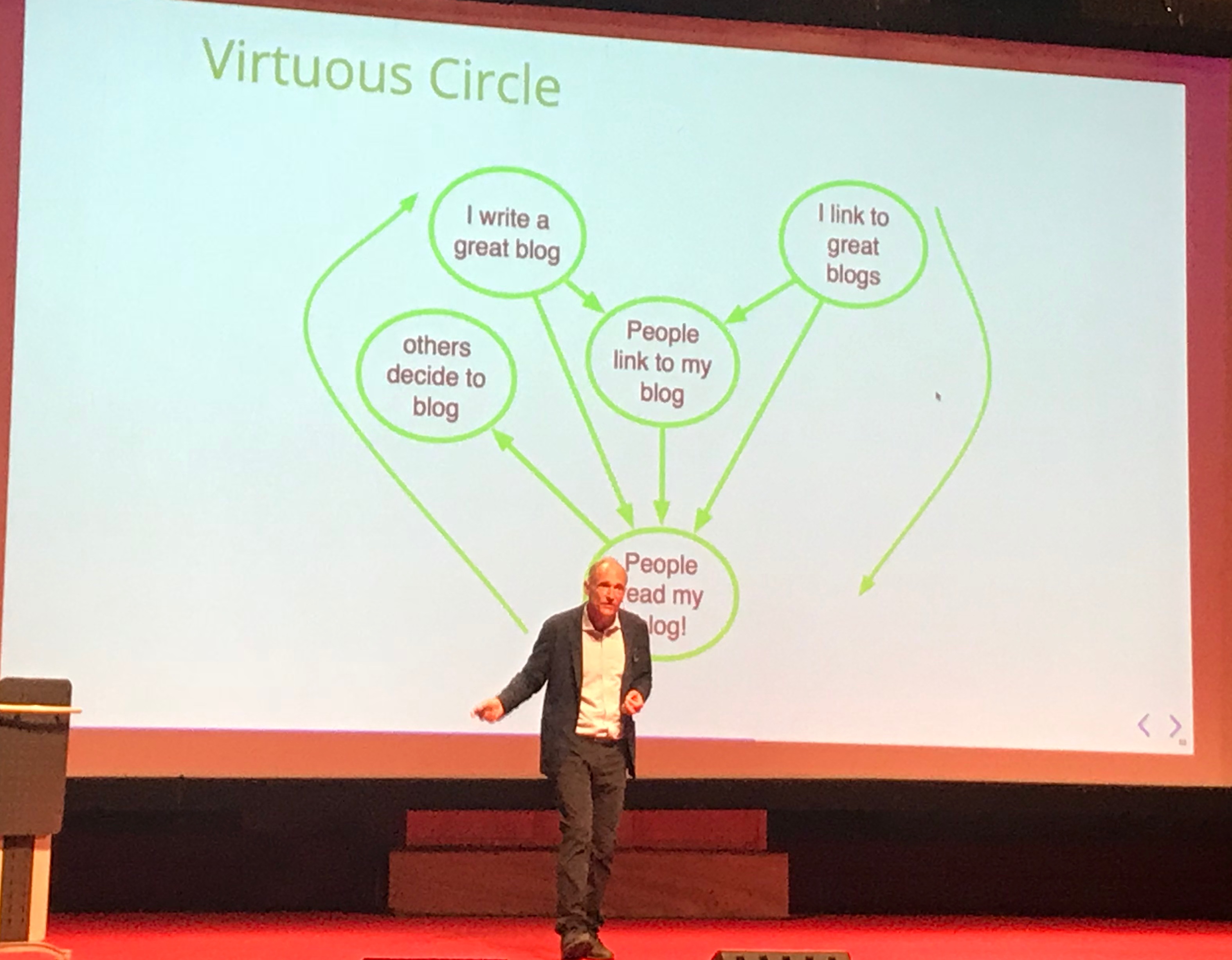
- Enhance Social Cohesion
One of the most important things you learn from the internet is that there is no ‘them’ out there. It’s just an awful lot of ‘us’.
- Wisdom of the crowd (all AI relies on human intelligence)
- Grassroot effort
Adoption or rejection is power
- Many views of importantance of choice
- Gives people ultimate power over technology direction
- We have to make sure their choices are real
A Personal History
- Father got PC on a stipend in 1985, I started programming
- Wrote my first Web page in 1994.
- Started skepsis.no in 1996.
- Finished Cand. Scient. in theoretical astrophysics in 2002.
- Started working with programming, with focus on disinformation.
- Worked on Opera Software's Social Networking from
2005.
- Web Content Label from 2006,
- Protocol for Web Description Resources (POWDER) Working Group
- Semantic Web Education and Outreach Interest Group
- SPARQL Query Language Working Group
- Finished Ph.d. on decentralisation from 2016.
Approaches to disinformation
- Making opposing viewpoints visible.
- Improving data to automate fact-checking
- Train people to respond
- Dyrendal and Jolley: “Conspiracy theories in the classroom: Problems and potential solutions”.
- Henry Story: "Epistemology in the Cloud"
These are hygiene measures
- Establish large scale virtouos circles
- Wide Area Public Debate Platforms
- Lower cost of survey and study of vulnerable groups.
- See e.g. Ajit Maan: "Disinformation Is Not the Problem and Information Is Not the Solution"
- Ezra Klein: "How politics makes us stupid"
Individuals subconsciously resist factual information that threatens their defining values.
Bad News and Good News
- Very little can currently be done in these areas
- but a broader view on governance can change the landscape
How Open Source won
Historical context
- Source code openness was inherited from academic openness
- Software started to be distributed separately from hardware in the 1960-ties
- Bill Gates became a champion of closed source in 1976.
- Richard M. Stallman's (now a loose cannon) moral imperatives from 1983
- The term Free Software was hard to explain:
- Free as in beer vs.
- Free as in speech
- "Open Source" was coined in 1998 because
We realized it was time to dump the confrontational attitude that has been associated with "free software" in the past and sell the idea strictly on the same pragmatic, business-case grounds that motivated Netscape.
Web Browsers
Foundational Google papers
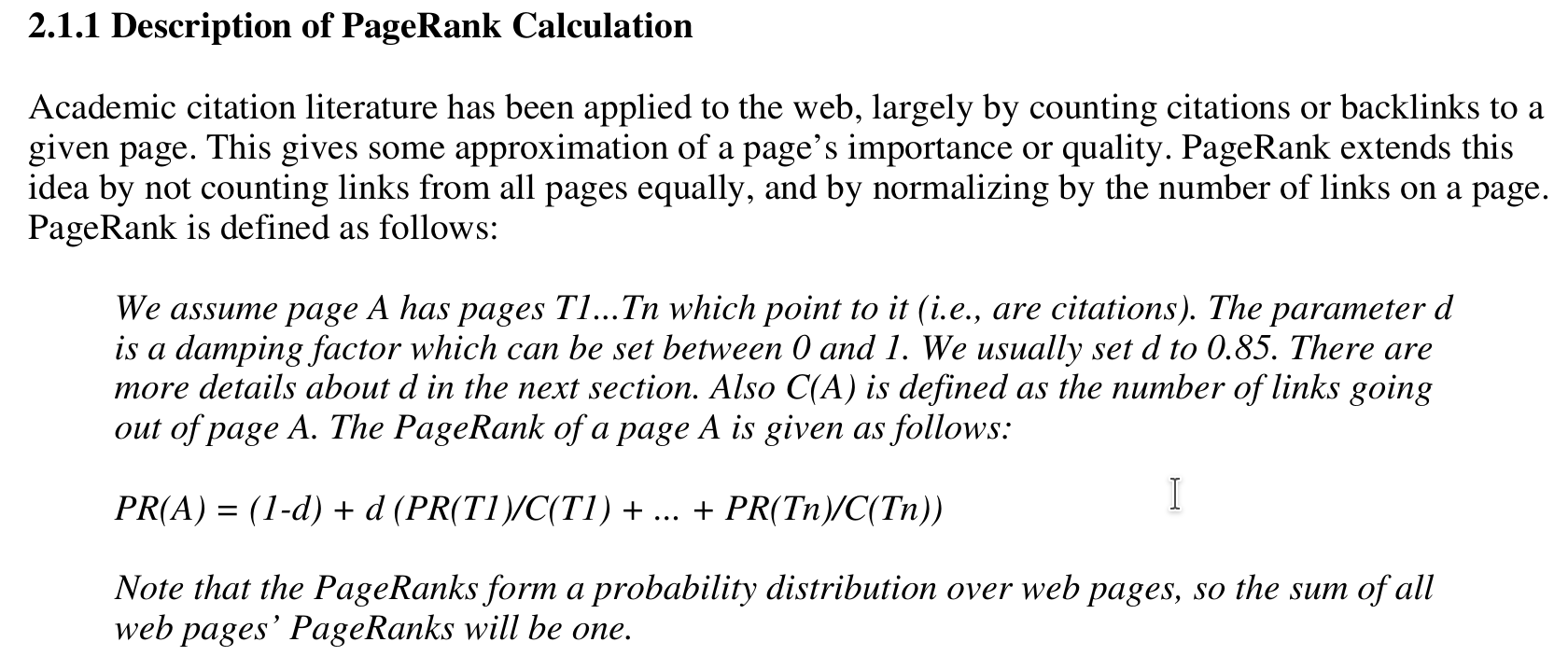
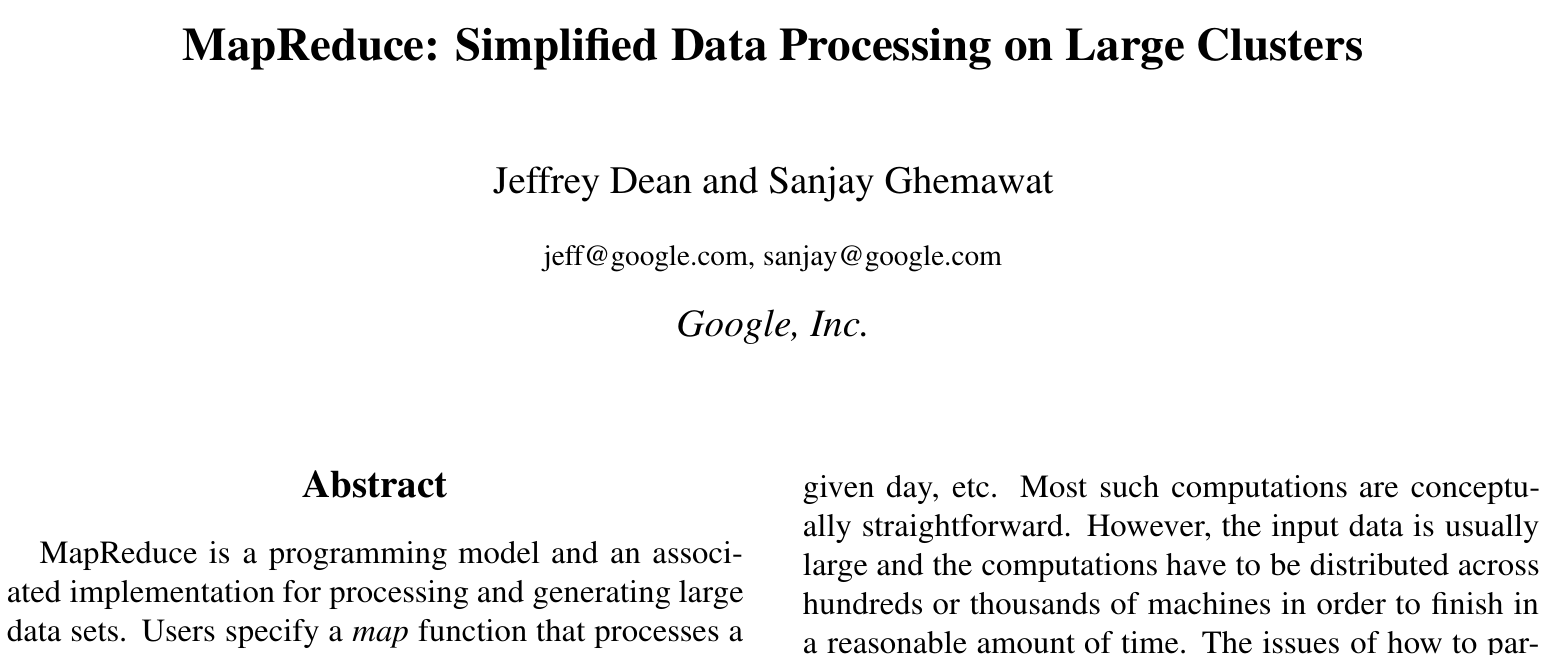
Machine Learning Frameworks
Android
- Developed under the Android Open Source Project
- Billions of users
Developing Standards
Some necessary prerequisites
- Implementation experiences
- Academic review
- Argue likely wide adoption by people
- General applicability
- Advance creativity
- Very detailed knowledge
- Business case or Civic case
Developing Standards
Case Study: CRUD vs WRAD
- The Fundamental Operations on an Information Resource
- CRUD: Create, Read, Update, Delete
- WRAD: Write, Read, Append, Delete
- Enables vastly different security mechanisms
- Influences citizen power, ethical considerations, etc.
Getting business acceptance
By Law Only
(Not actually at the table)
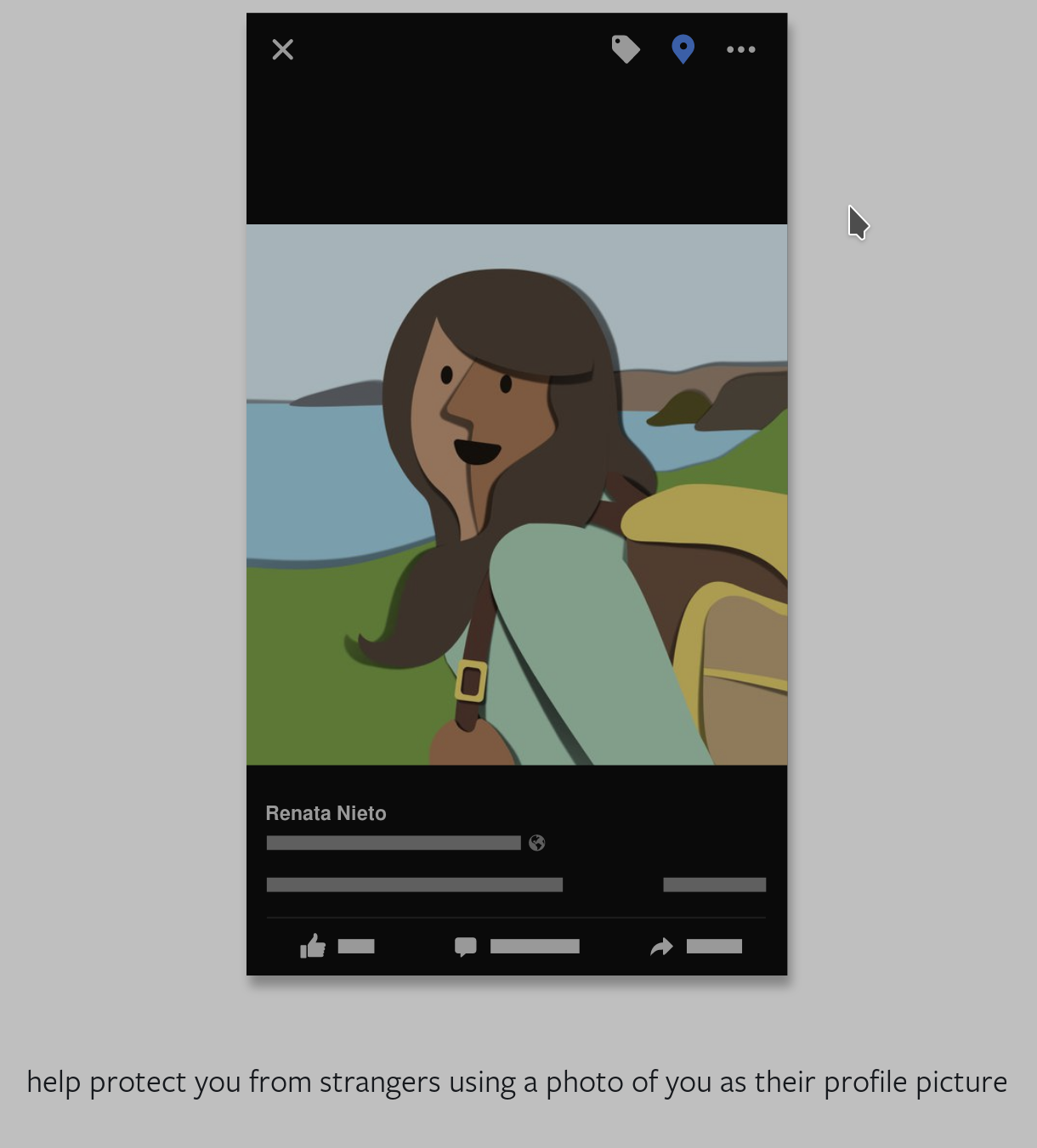
Technical Expert at the table
Business Case?
Technical Expert at the table with extensive review
Business Case?
Technical Expert at the table with prototype
Business Case?
Will it have actual users?
Technical Expert at the table with large pilot
Allright...
Now it is give and take
Is this actually unreasonable?
- There is a genuine focus on user value
- Every feature has a cost
- This cost may be too high for startups
- It is reasonable to expect democracies to invest in things they decide
- People can derive power from democracies doing so
Commercial Ecosystems
- For broad adoption we must integrate into commercial ecosystems
- Businesses drive the trains, democracy lies the rails
- but democracy cannot merely say where the tracks should be
- Done right, practices could be established to give people real power
- but beware short hype cycles
From nerds to broad adoption
- There are plenty of projects that empowers
only us
- GnuPG and related projects — valuable encryption tools
- NEPOMUK — an advanced semantic desktop
Supporting the navvies
- Common Markup for micropayment per-fee-links — 1999
- Platform for Privacy Preferences (P3P) — 2002
- Protocol for Web Description Resources (POWDER) — 2009
- Do Not Track — 2011
A place at the table
Relationship to GovTech
- GovTech will provide many important building blocks
- GovTech is developed with a direct democratic mandate
- It can hardly be rejected by citizens
- Is too narrow in scope to address the regulability problem
Anti-trust regulation
- We are citizens not just consumers!
- We are also creators! All of us
Choice of projects
Goal:
Gain regulability by empowering individuals to make real technology choices.
For the general population to support it, we could
- Enact laws and regulations
- Solve pressing problems
- use network effects and virality to give them cool things
I feel your pains
But untill we have gained regulability,
- our ability to effect these changes are severely limited.
- and we need to focus on problems that are close to the people solving them
We focus on Digital Public Goods that are
- generalizable
- enables creativity
Case Study: Autonomous Vehicles
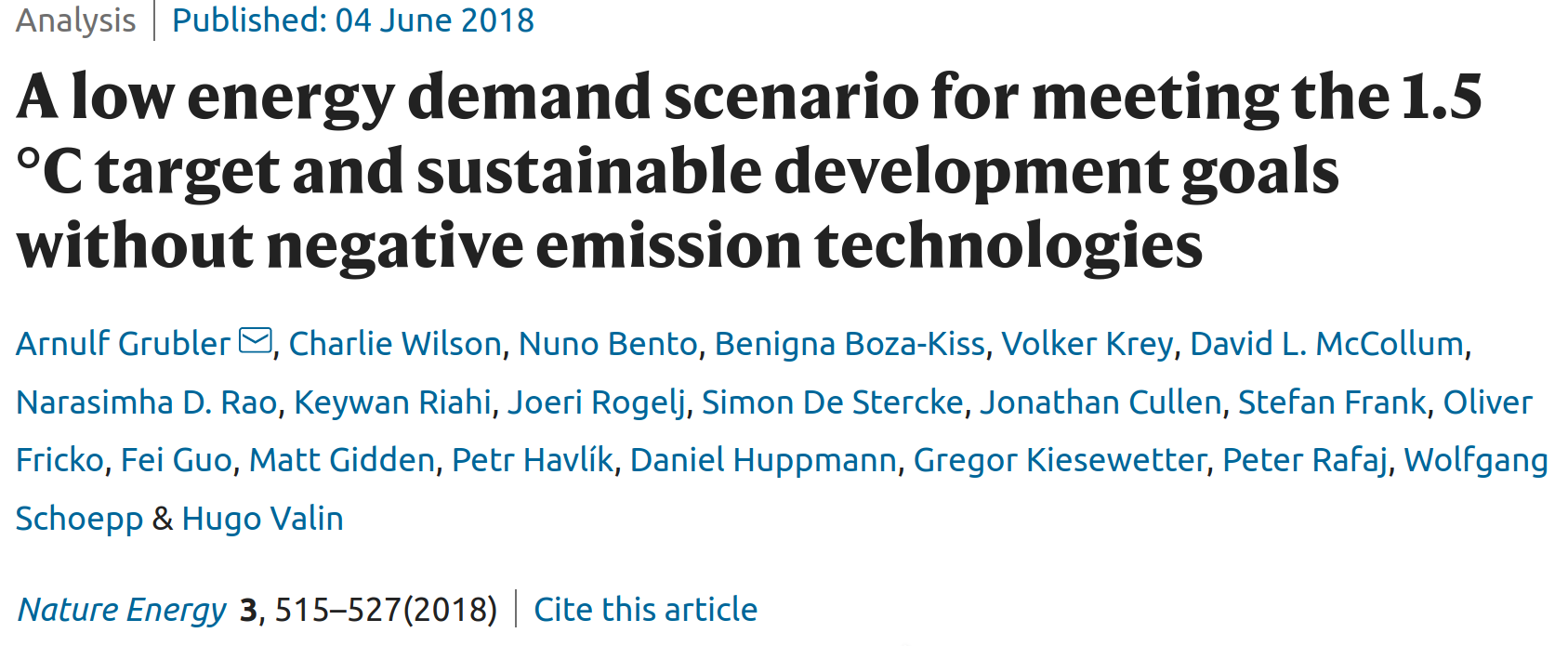
Norms set down in code that will make life-and-death decisions.
Trivialising decisions

- Very restricted outcome space
- Outcome space with AI is enormous!
High-level overview
- Vehicle is steered by a cost model
- The cost model is dominantly informed by machine learning
- But rules, physics models and heuristics are also needed
An actual excerpt from a cost model
my $lcost = $planner->cost_for_plan($children[0], $self);
my $rcost = $planner->cost_for_plan($children[1], $self);
$cost = ($lcost + $rcost);
$cost++ if ($rcost > $lcost);
$cost *= 100 unless ($plan->children_are_variable_connected);
It's burning
- Power is being removed from open standards
- People are being accustomed to consent to anything
- Developers are being laid off from open source companies
- We got Open Source and Free as in Beer, but not Free as in Speech
- Internet of Things is exploding, with no citizen rights
- and Donald Trump is making an echo chamber...
The Case for Optimism
- Exponential data growth
- Often exponential uptake
- Incumbent's useful stuff is a small part of the companies
- Our products don't need to survive, just our norms
- It hasn't been tried yet at scale